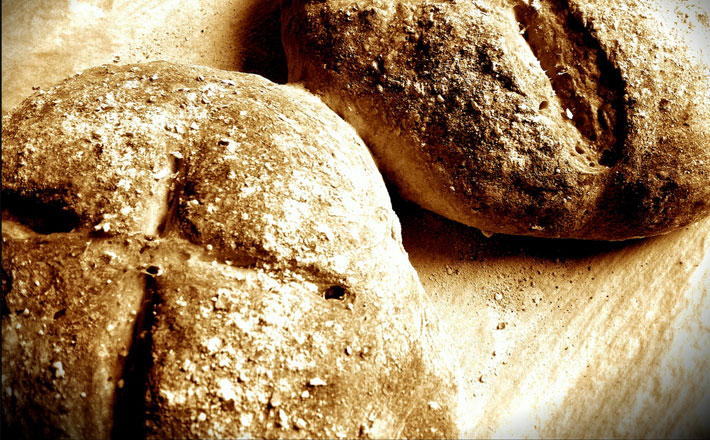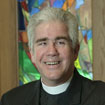Commentary on John 6:35, 41-51
People complain that, in my preaching, I do not tell them what to do.
Last week, I left you with a list:
- Trust that God is doing something new, which circumstances cannot undermine or negate.
- Submit everything, even our highest-stake issues and our most pressing concerns, to Jesus.
- Be less concerned about what we do and more open to what God is doing.
It sounds so good. But how does it really sit with us? We wistfully tolerate this to-do list until something happens — a plane crashes, a war erupts, a toddler is diagnosed with cancer, a teenager experiences discrimination firsthand, a grandparent is stricken with Alzheimer’s, a church leader crosses a boundary, or a police officer fires his or her weapon. And we know God not to speak up, let alone to step up. And leaving everything up to God seems naive, if not ridiculous. We have had enough of silly church talk. We just know too much for it to be true.
Perhaps this is what happened to the crowd with Jesus; they knew too much for Jesus’ words to ring true. Jesus said, “I am the bread that came down from heaven” (John 6:41). The Judeans object. They murmur among themselves. These are the insiders, the ones who know the history — they know how God does things and how things should be done. They also know Jesus’ origins. “Who does he think he is?” They mutter, “Claiming to have come down from heaven? We know his folks. We know he came from Nazareth, not from heaven!” (verse 42) These Judeans also know their scripture. “The bread from heaven was the manna fed to our ancestors back in the time of Moses,” they correctly point out. And these Judeans know the law. “The Lord God said, ‘I am the Lord your God; you shall have no other gods.’” They know it all.
Maybe they know too much. Or perhaps they really don’t know enough. When I was in seminary, I took a trip with then president of a Lutheran college. He was driving and I was reading the student newspaper to him aloud. A pre-seminary student had written an editorial espousing the use of doughnuts and coffee or pretzels and beer as the elements in the Eucharist. When I started to audibly protest, the president raised his hand, smiled, and quietly said, “Remember, Craig, a little knowledge is a dangerous thing, and it can lead us to the wrong conclusions.” The student only knew a little. In retrospect, so did I.
A little knowledge is a dangerous thing, and it can lead us to the wrong conclusions. When it comes to God, and even to the Church, we know only a little. Like all living things, the Church — and our understanding of God — continues to grow and to change. And so to know only a little, and to think the little that we know is all that there is to know, can be fatal. These Judeans had some head knowledge about God; perhaps they did not know God by heart or by trust.
Jesus says to them, “Everyone who has heard and learned from the Father comes to me” (John 6:45). The Judeans knew some things, but their knowing was limited, and they let it close their ears, shut their hearts, and limit their vision. They were unable to hear and know what God was trying to show them. They had made up their minds and did not want to be confronted with what Jesus tried to teach them. Now that rings true for us!
So when are we like those Judeans? What issues reveal that we know too much about the Jesus of our traditions and not enough about the living Word God speaks to us now? When do we allow our knowledge of the history of the past to close our eyes to the working of God in the present? When are we looking and listening with open hearts? When are we willing to be drawn to the Bread of life, rather than put our trust in what we know?
What do we do when have we known God not to speak up, let alone to step up? What do we do when leaving everything up to God seems naive, if not ridiculous? What do we do when we have had enough of silly church talk because we just know too much for it to be true?
Jesus is not calling us to abandon our knowledge and tradition as if they still cannot teach, help and guide us. Jesus cautions us that our knowledge will not give us absolute answers or a foolproof plan to make things right. God’s answer is rarely to reassure us that our knowledge and understanding are correct. If anything God uses our knowledge to give a purpose, a journey, and a direction — namely, to trust and follow Jesus. Whatever the details of this journey are for us, its purpose is to draw us into life as part of God’s coming reign, which human-constructed circumstances and conditions cannot undermine or negate. The risk of setting out on the journey, which is trusting and following Jesus, is that, even when we think we have a map or a plan, we do not really know where we are going or where we will end up.
The good news is that Jesus, rather than our knowledge and understanding, is the source of our calling and the source of our strength. What makes it good news is that, in those moments when we understandably have enough of this life that we cannot trust Jesus, Jesus has not had enough of us. So, rather than turning to our knowledge, perhaps we can turn to Jesus, recognizing that we certainly cannot have enough of him. When put that way, it is a wonder that we aren’t so drawn to the Bread of Life that we double back into the line for communion in order to get seconds.


August 9, 2015